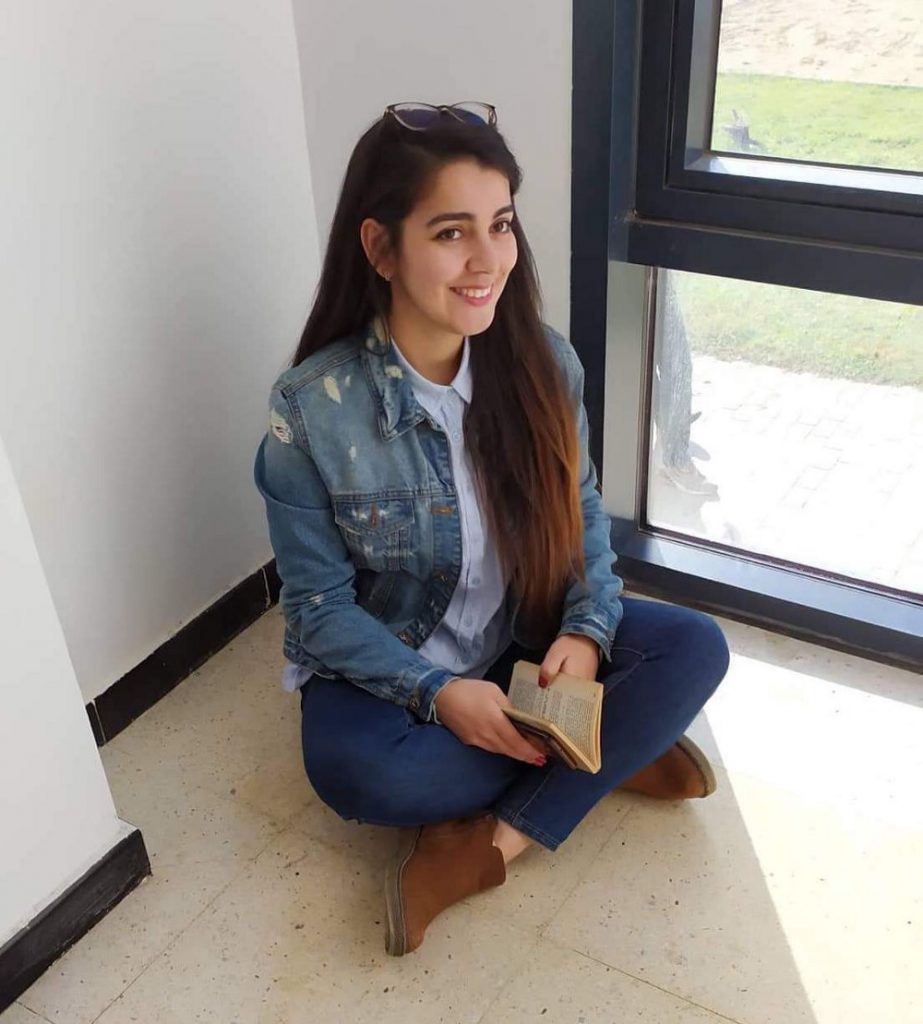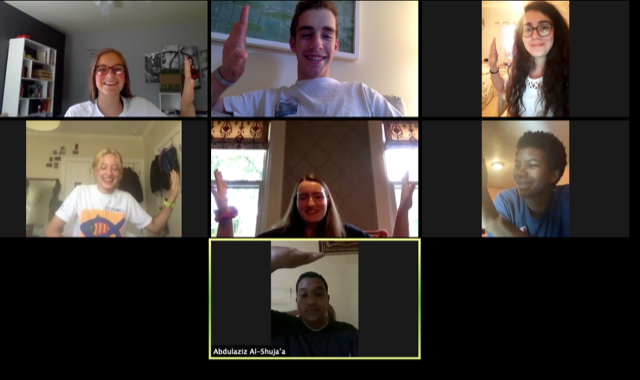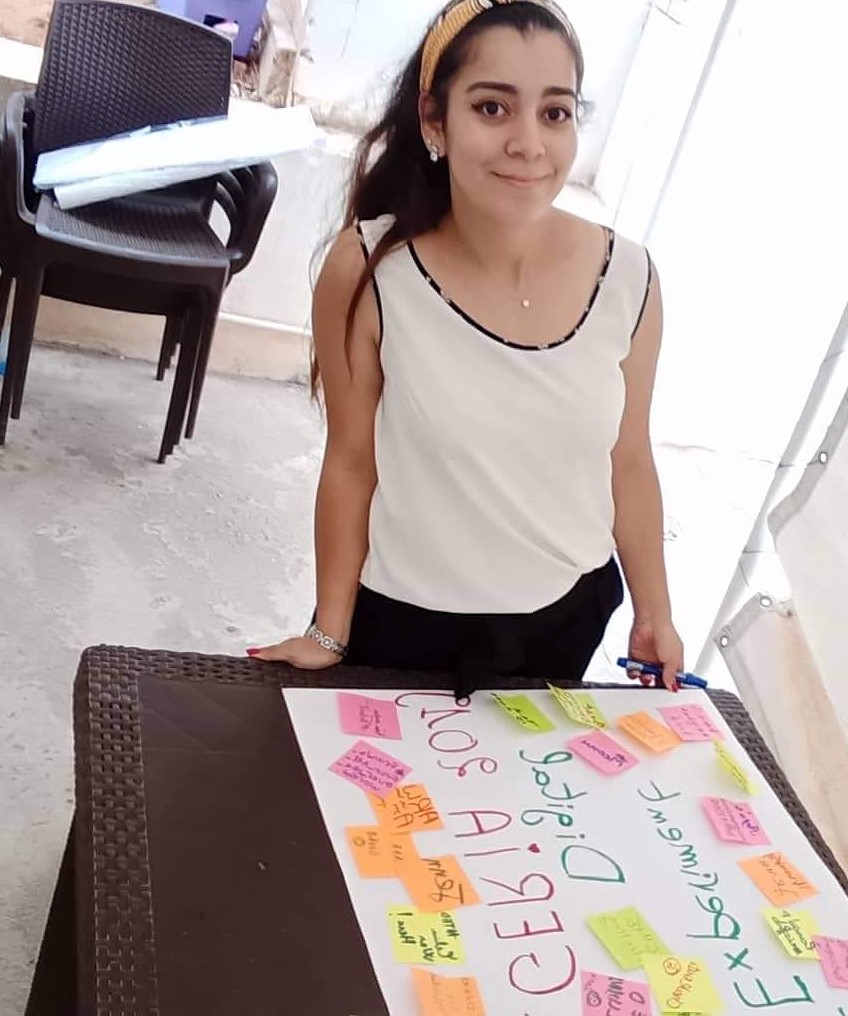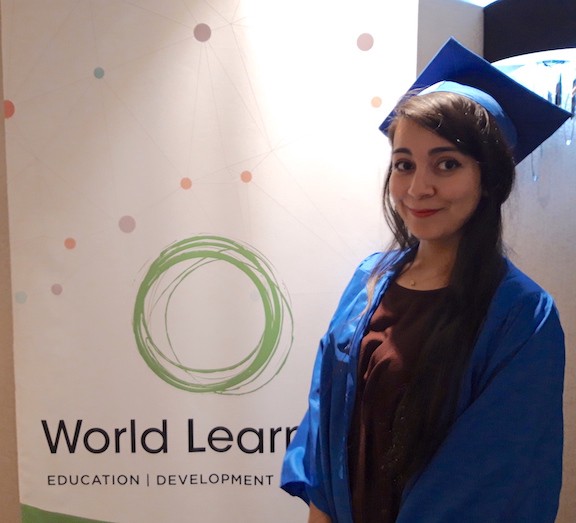-
What We Do
- WHERE WE WORK
-
About Us
 Welcome Message from Carol Jenkins
Welcome Message from Carol JenkinsFor more than 90 years, World Learning has equipped individuals and institutions to address the world’s most pressing problems. We believe that, working together with our partners, we can change this world for the better.
On my travels, I’ve had the opportunity to meet with many of those who have joined us in this mission. In Baghdad, we’ve trained more than 2,300 Iraqi youth who are already giving back at home. In London, our partners in the TAAP Initiative strongly believe that we are all responsible to practice inclusion. And in Vermont, our Experiment in International Living and School for International Training participants prove every day that they have the tools and the determination to change the world.
Please join us in our pursuit of a more peaceful and just world.
- Get Involved
Media Center > Story
What Does it Take to Facilitate a Virtual Exchange Across Two Continents?
September 21, 2020
Ten Questions for The Experiment Digital Facilitator Djamila Azzouz
This interview has been edited and condensed for clarity.

Djamila Azzouz is a 22-year-old Algerian student who worked as a facilitator for World Learning’s eight-week The Experiment Digital program in 2019 and 2020. The program is a virtual exchange designed to connect hundreds of young people across the U.S. with peers in Iraq, Algeria, Yemen, and other countries in the Middle East and North Africa Region. Trained facilitators play an essential role in the exchange, fostering safe and intimate group conversations between participants — both in virtual ‘neighborhoods’, groups of 30–35 participants and ‘families’, small groups of 6–8 participants.
Azzouz is currently working on a master’s degree in Anglo Saxon literature and civilization and majoring in media studies at Abou EL Kacem Saâdallah University — also known as Algiers 2 — located in Algiers, the capital of Algeria. She is an alumna of World Learning’s Maharat Mentorship program, an eight-month training program designed to help young Algerian women develop leadership and professional skills.
Last summer, Azzouz was a facilitator for The Experiment Digital’s first cohort. When she’s not studying or facilitating, Azzouz teaches English and trains others in public speaking. She enjoys reading and drinking tea. We caught up with her at the end of her stint with The Experiment Digital to find out what her experience was like.
Tell us about the role of a facilitator for The Experiment Digital.
A facilitator is a combination of things that are really important — teaching and mentoring. For me, being a facilitator for The Experiment Digital is being the link between the participants and engaging them with the content of the program.
What kind of topics are covered?

Each week we have a different topic, for example, during the first week we did topics related to self-discovery such as analyzing personal strengths, weaknesses, opportunities and threats and what does leadership mean to you to introduce participants to each other. As we get deeper into the program, we talked about an area of improvement that you think would make your community better and a project proposal.
What does a typical week look like? What are some of your responsibilities?
Facilitators spend 8–10 hours a week working for the program. A week in which we have our family dialogue, that’s a really, really busy week. Otherwise facilitators are checking whether participants are moving on the right track, completing their activities, and engaging with others. In the morning when I wake up, I check my email and messages on Canvas [an online learning platform]. In the afternoon, I check again and see if there’s anything I have to keep an eye on.
It sounds like the family discussions are intense. Is your role to start them off and make sure they stay friendly even when people disagree?
In each neighborhood we have about 30–35 participants and it’s impossible to have one dialogue. So, we divided into small families. These family dialogues happen every two weeks, one hour each where we have a family that contains 6–8 participants. It can get really busy when everyone wants to share. Each week facilitators receive a guide from The Experiment Digital team that helps us facilitate a live dialogue on Zoom.
I always start by welcoming the participants and encouraging them to share and be open since it’s not recorded and it’s a safe space. We have general topics and I start asking questions to get the conversation going and the participants say what they think. During the last family discussion, we had time to talk about what we appreciated about each other and things we learned, and a lot of participants said thank you for making me see and learn things about myself.
You’ve been a facilitator twice. How did you prepare for this role?

The training was 3 weeks [facilitators averaged 4 hours a week training]. They [The Experiment Digital team] gave us a lot of training material to learn about our tasks, our role, and the role of our peer mentor. We also did some activities. For example, they posted a video and we acted as if we were the participants and completed the exercise. It’s like what you do during soccer practice: some have to play the other team and then switch.
What was the best part of being a facilitator? How did you grow from the experience?
I think most facilitators would say that the best part is being part of the family dialogue. It’s the chance when we all get to really connect.
What advice do you have for someone interested in being a facilitator? What would you tell one of your friends if asked about what to expect?
One of my friends actually asked me this question! If I had to explain to someone what is facilitating for The Experiment Digital I would say it’s a two-month program where you have to transmit ideas and monitor the participants to see if they are following and completing the activities. It’s also about mentoring. You cannot really facilitate if you are not engaged in the outside world. It would be really hard to facilitate and understand others from different backgrounds if you weren’t interested in what’s going on. Advice I would give to someone who wants to apply is go for it. You will not regret it. Sometimes things aren’t perfect, and you think I can’t believe this happened but that’s ok because you’re learning. Just go for it. When I applied for the program the first time, I didn’t really know what I would do and what would be expected of me, but I did not regret it at all. That’s why I applied to do it again this summer. Since it’s World Learning I trusted it.
How do you think it will affect your future career prospects?

With facilitating and teaching at the same time I feel like I can easily manage a group of people without having any difficulty. Before I just wanted to teach and now, I want to teach but I also want to mentor and design programs. Because doing World Learning’s Maharat program I realized that’s possible. One day I’d like to work with World Learning Algeria.
What do you say to people who may be skeptical of virtual exchanges? How do you convince them that this is a worthwhile experience?
[Laughing] Even my mother doesn’t understand what I do. When I get ready to facilitate and I shut the door to the room she says ok you’re going to talk on the phone and I say no mom, I’m not talking on the phone. I’m working! It’s hard to explain. You have to see it for yourself.
What did you see for yourself that was life changing?
During one of the family dialogues when we were talking about stereotypes, I thought to myself this is why I applied to work with The Experiment Digital. When they were correcting each other’s presumptions and stereotypes and all of these ideas that we fill our heads with through media and social media were changing. A lot of them were saying, no, I don’t think that about you. I witnessed with my own eyes the change. It was amazing! Being part of an exchange program doesn’t necessarily mean travelling to another place. In some Middle Eastern countries, girls are not allowed to travel alone but The Experiment Digital is a really great opportunity to learn about others and learn about yourself all while staying at home behind the screen.
The Experiment Digital is supported by the Stevens Initiative, which is sponsored by the U.S. Department of State, with funding provided by the U.S. Government, and is administered by the Aspen Institute.





